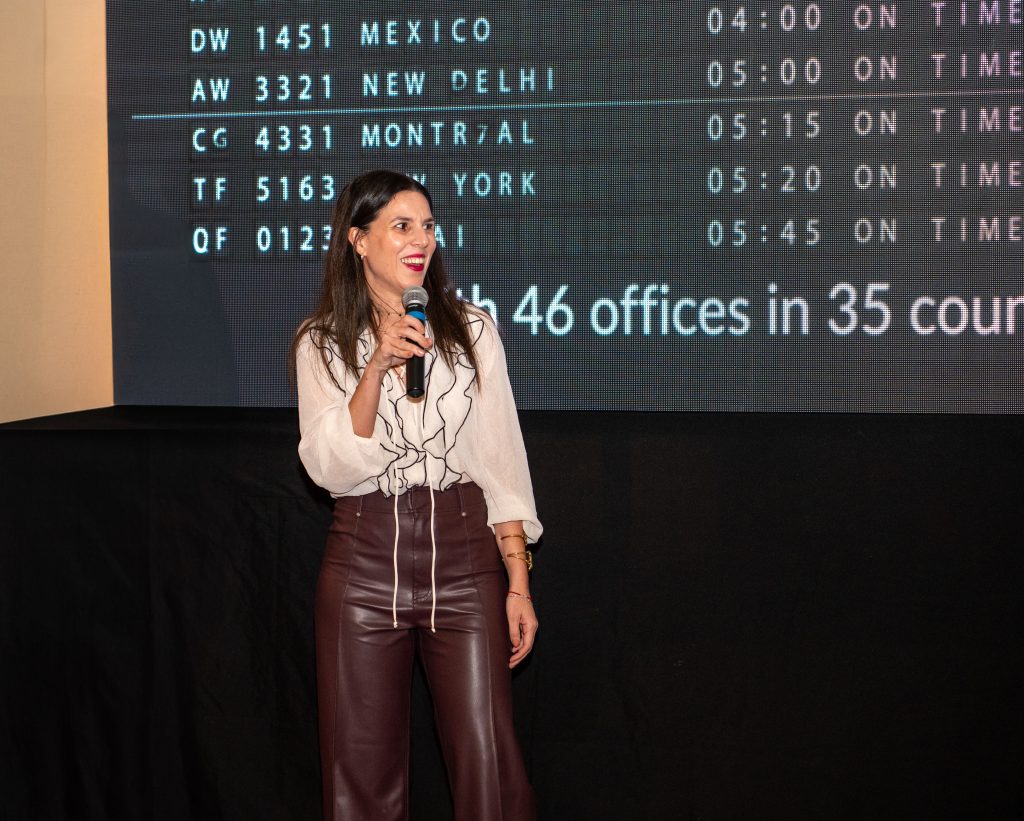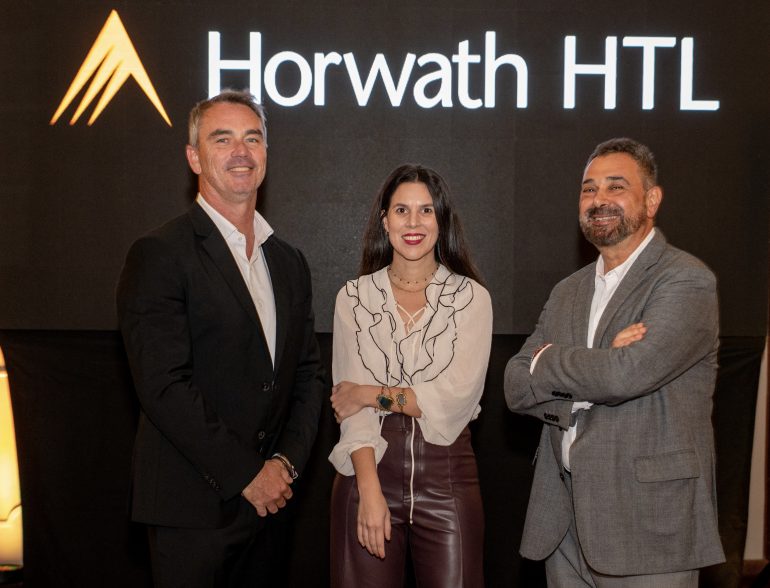With almost half a century of experience in Paraguay and more than 100 years internationally, Horwath HTL stands as one of the leading consultancies in hospitality, tourism, and leisure. As part of Crowe Global – the eighth largest network of professional services firms in the world – its mission in the country is clear: to support the stakeholders of the hotel industry in making strategic decisions, providing data-driven advice with a global perspective.
Trajectory and vision
Josefina Otero Rey, Country Manager in Paraguay and Higher Technician in Hotel Administration trained in Buenos Aires, explains that the aim is “to transfer all possible experience and technology, relying on transparent data”. The objective, she affirms, is not solely profitability, but that hotels are able to generate memorable experiences and genuine connections with their guests.
“Paraguay has the numbers in its favour. It is time to extend this opportunity to the entire country, not only to Asunción,” Otero Rey adds, emphasising that events and the meetings industry increasingly require a solid hotel infrastructure.
An industry in evolution
For Osvaldo Chudnobsky, Managing Partner of Horwath HTL Brazil and member of the global committee, the Paraguayan market is at a decisive moment.
“After a long time, Paraguayans believe in the possibility of becoming a tourism power. That belief is the foundation: the desire, the pride, and the will to move forward. Paraguay has the conditions to develop, and our role is to accompany that process with transformative projects.”
Comparing the region, Chudnobsky highlights that while Brazil is the second largest market in Latin America and Mexico is far more developed, Paraguay and Argentina are still in the early stages of hotel expansion. This difference, however, translates into fertile ground for innovation.
Challenges for the sector
One of the principal obstacles to growth in the Paraguayan sector is financing. “The financial system in these countries does not yet fully understand the hotel industry,” Chudnobsky notes. To this, according to the Horwath HTL Brazil Managing Partner, is added the lack of access to reliable market data, an area in which Horwath positions itself as a key ally.
“The key is to make decisions based on solid information, with business plans that are sustainable over time,” stresses Otero.
Juan Carlos Descalzo, partner and director of Horwath in Paraguay, agrees that the sector’s evolution is being shaped by cultural change.
“Previously, Paraguay was not a tourist destination, and therefore the hotel industry did not face the demands of international clients. Today the situation has changed, the market is evolving, and Horwath is evolving alongside it.”
This shift is reflected in the numbers: more than 1.5 million tourists are now drawn to Paraguay’s mix of culture and nature, with visitor arrivals reaching record levels and generating hundreds of millions of dollars in revenue.
Reinventing the hotel industry without losing its essence
The Horwath team works on all types of projects, from boutique hotels to mixed-use developments that integrate residences and shopping centres. The key, according to Chudnobsky, lies in assessing the viability of each business model and ensuring that the hotel is successfully integrated into its environment.
“It is not only about an economic market vision. We come from business auditing, so our focus is on how the business can generate greater value, in a sustainable way and with clear objectives,” Descalzo points out.
Post-pandemic trends
The covid pandemic left its mark on travel habits and on the relationship Paraguayans have with hotels. According to Otero, today nature tourism, unique experiences, and the meetings industry are far more valued. Even in Asunción, hotels are being prepared with the local public in mind, offering urban escapes with innovative proposals.
“People are no longer looking merely for a place to sleep, but for spaces that offer memories, connection, and well-being,” adds Otero.

A promising future
The consensus among Horwath’s leaders is clear: Paraguay is in the process of building its own tourism identity. The challenge will be to support entrepreneurs and developers so that investments not only respond to immediate demand but also project the country as a competitive destination on the regional map.
“We believe in Paraguay’s potential and in its capacity to become a benchmark. Our mission is to stand alongside the stakeholders of the sector, helping them to make the right decisions,” concludes Chudnobsky.


